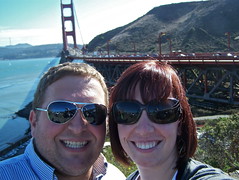 The first few chapters of Andrew Root and Kenda Creasy Dean‘s new book, The Theological Turn in Youth Ministry, deal with the need for a different vocabulary in the ways we, as a church, work with young people. I think the genius of these first chapters is that it acknowledges and encourages the intuition and experience of those of us who work with youth, while trying to establish some robust theological foundations to steer these intuitions. What this theological lexicon does is really help to make youth ministry a re-generative process. What I mean by that is this. If we see God’s actions throughout scripture as primarily acts of a minister, then how we talk about God (our theology) must reflect the practicality of God’s action. That is to say, our theology must have action and vice versa. If we see God as a minister of creation, incarnation, Pentecost etc. then our practice of ministry actually precedes theology. However, it is re-generative because it acts in circles.
The first few chapters of Andrew Root and Kenda Creasy Dean‘s new book, The Theological Turn in Youth Ministry, deal with the need for a different vocabulary in the ways we, as a church, work with young people. I think the genius of these first chapters is that it acknowledges and encourages the intuition and experience of those of us who work with youth, while trying to establish some robust theological foundations to steer these intuitions. What this theological lexicon does is really help to make youth ministry a re-generative process. What I mean by that is this. If we see God’s actions throughout scripture as primarily acts of a minister, then how we talk about God (our theology) must reflect the practicality of God’s action. That is to say, our theology must have action and vice versa. If we see God as a minister of creation, incarnation, Pentecost etc. then our practice of ministry actually precedes theology. However, it is re-generative because it acts in circles.
We begin in the on-the-ground experience of ministry, theologically reflect on that ministry, which then impacts how we move forward in our new experiences of ministry with young people. Even though this sounds like a fairly basic motion of the “act-reflect-react” model. However, I think it’s significantly different because it seeks to connect to the heart of God’s ministry in the world.
It takes the responsibility of initiating creation off of us and frees us to participate in the world that God is continually creating.
I think so many people get burned out when we feel like we have to be the ones who are responsible for creating a ministry. But that’s not the case. Through Andy and Kenda’s insistence on theological reflection, we are free to observe where God is acting in our midst and then seek to participate and further that action.
Check out the book here.. I’ll probably do another post or two reacting to a couple more points in the book. It’s an absolutely worthwhile read and is chock full of rich, theological reflections that is absolutely worth reading and wrestling with.
Enjoy reading!
Cheers,
Eric














